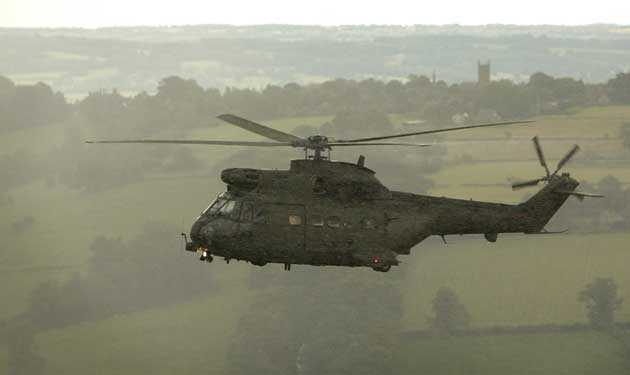Army failings revealed in damning report
Warnings over severe lack of equipment emerge as latest soldiers to die in Afghanistan are named

Three soldiers killed in action in Afghanistan last Thursday were named yesterday. Sergeant Ben Ross, Royal Military Police, and Corporal Kumar Pun, the Royal Gurkha Rifles, were killed by a suicide bomber during a patrol in Gereshk on Thursday, the Ministry of Defence said. A third soldier, Rifleman Adrian Sheldon, 2nd Battalion, the Rifles, died in an explosion while travelling in a Jackal vehicle near Sangin in Helmand province. A fourth soldier, Corporal Sean Binnie, 22, 3rd Battalion the Royal Regiment of Scotland, was shot dead by Taliban fighters near Musa Qala. The three separate incidents in Helmand province on Thursday took the total number of dead to 157.
This news comes as a damning report into the state of the British Army emerged yesterday, cataloguing serious concerns among commanders including the grim warning that there is not enough equipment for soldiers to train properly before being sent into combat. Shortage of machine guns, night-vision equipment and protected vehicles are cited as problems in the Chief of the General Staff's briefing team report. It admits that there are not enough optical sights to go round for the standard-issue SA80 rifle.
General Sir Richard Dannatt, head of the British Army, has pledged: "Ensuring that we train as we fight is one of my highest priorities." In a sign of the growing tensions between the MoD and the Treasury, he added: "Securing funding to improve DCC (dismounted close combat) equipment is crucial to enable this and is key ground in this year's planning round."
The Army is also suffering from medically unfit soldiers leaving gaps in the ranks, according to the report, which describes official MoD statistics as "inaccurate". It warns: "Realistically this should be in the thousands, not hundreds. Underreporting is the major issue – there appears to be no incentive to report sick soldiers." It adds: "Many cases of seriously wounded soldiers are not being reported; therefore, the Army does not have an overall picture of just what the extent of the problem is."
In addition to long-running concerns about healthcare for soldiers wounded in action, the report refers to complaints that sick soldiers are waiting too long for treatment on "non-operational injuries" and says: "As there is little priority within the NHS and only limited access to private treatment, there was a sizeable number of soldiers with non-operational injuries who are not able to fulfil the full range of military tasks or deploy on operations." Service personnel still fear they are being "asked to do too much with too few resources", says the report, which admits that overstretch remains an issue. Underlining the importance of avoiding "overstretch", General Dannatt said: "I am quite clear that fully manning the Army is absolutely critical for operational success. I continue to develop the case to grow the size of the Army."
But it is not just the overall state of the Army that is causing concern. An internal review by the MoD confirms the worst fears of many who have been citing safety concerns over the RAF's ageing fleet of Puma helicopters. The review cites critical problems with the "workhorse" helicopters that have been involved in a number of fatal incidents in war zones. They are also said to be more vulnerable to crash damage and loss of life than other types of helicopter, according to the report. It states: "The propensity of Puma to turn over after a heavy landing is well known, and increases the vulnerability of crewmen and passengers who are not properly restrained."
An MoD spokesman said: "The report contains the unedited views of individual soldiers, some of which reflect widespread opinion, while others are isolated views. The report also contains many positive views, for example, on equipment – thought to be the best the Army has ever had."
Report highlights: Shortage of troops, guns and healthcare
Housing – schemes to help soldiers to buy their own homes "inadequate."
Transport – new engines for Puma helicopters "essential."
Equipment – shortages persist; not enough rifle sights to go round.
Family life – soldiers spending up to a year apart from their families.
Money – many married soldiers finding it hard to make ends meet.
Health – thousands of soldiers are too sick to serve.
Personnel – the Army remains under-strength and is short of combat troops.
Join our commenting forum
Join thought-provoking conversations, follow other Independent readers and see their replies
Comments
Bookmark popover
Removed from bookmarks